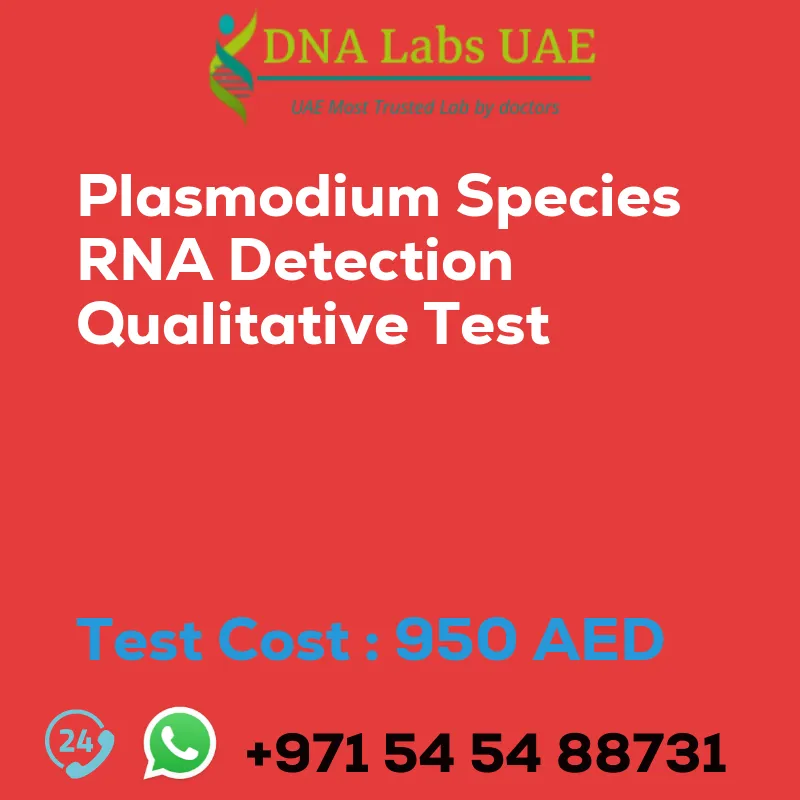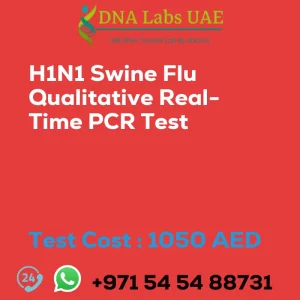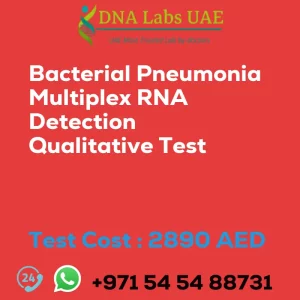Plasmodium Species RNA Detection Qualitative Test
Welcome to DNA Labs UAE, a leading genetic laboratory offering the Plasmodium Species RNA Detection Qualitative Test. This test is designed to detect the presence of Plasmodium species, the parasites responsible for causing malaria.
Test Details
The Plasmodium species qualitative test focuses on detecting the parasite’s RNA, which is its genetic material responsible for replication and survival. To perform this test, a blood sample is collected from the patient suspected of having malaria. The blood sample is then processed in our laboratory to extract the RNA present in the Plasmodium parasites.
Next, the extracted RNA is converted into DNA using a process called reverse transcription. The DNA fragments specific to the Plasmodium species being tested for are then amplified using polymerase chain reaction (PCR). PCR is a highly sensitive and specific method that can detect even small amounts of the parasite’s genetic material.
The amplified DNA fragments are analyzed using various detection methods, such as gel electrophoresis or fluorescent probes, to determine the presence or absence of the Plasmodium species being tested for. Positive results indicate the presence of the parasite, while negative results indicate its absence.
This qualitative test is crucial for accurate and early diagnosis of malaria, as it can detect the parasite even before symptoms appear. It is particularly useful in regions where malaria is endemic and for travelers returning from malaria-endemic areas. Early detection allows for timely treatment, which can help prevent severe complications and reduce the spread of the disease.
Test Name: Plasmodium Species RNA Detection Qualitative Test
Components
- Price: 950.0 AED
Sample Condition
- Whole blood, dried spot
Report Delivery
- 4th Working Day
- Email: 48 hours
- On phone: 36 hours
Method
- Real Time RT-PCR
Test Type
- Viral
Doctor
- Physician
Test Department
- Genetics
Pre Test Information
Prior to the Plasmodium Species RNA Detection Qualitative Test, patients are required to sign a consent document and bring any clinical history related to the patient’s Plasmodium species (RNA Detection) Qualitative Test.
| Test Name | Plasmodium Species RNA Detection Qualitative Test |
|---|---|
| Components | |
| Price | 950.0 AED |
| Sample Condition | Whole blood,dried spot |
| Report Delivery | 4th Working Day Email : 48 hours.On phone : 36 hours |
| Method | Real Time RT- PCR |
| Test type | Viral |
| Doctor | Physician |
| Test Department: | Genetics |
| Pre Test Information | Need to sign Consent document and bring any clinical history of patient forPlasmodium Species (RNA Detection) QualitativeTest |
| Test Details |
The Plasmodium species qualitative test is a diagnostic test used to detect the presence of Plasmodium species, which are the parasites responsible for causing malaria. This test specifically focuses on the detection of the parasite’s RNA, which is the genetic material responsible for its replication and survival. The test involves collecting a blood sample from the patient suspected of having malaria. The blood sample is then processed in a laboratory to extract the RNA present in the Plasmodium parasites. This RNA is then converted into DNA using a process called reverse transcription. Next, a technique called polymerase chain reaction (PCR) is used to amplify the DNA fragments specific to the Plasmodium species being tested for. PCR is a highly sensitive and specific method that can detect even small amounts of the parasite’s genetic material. The amplified DNA fragments are then analyzed using various detection methods, such as gel electrophoresis or fluorescent probes, to determine the presence or absence of the Plasmodium species being tested for. Positive results indicate the presence of the parasite, while negative results indicate its absence. This qualitative test is crucial for accurate and early diagnosis of malaria, as it can detect the parasite even before symptoms appear. It is particularly useful in regions where malaria is endemic and for travelers returning from malaria-endemic areas. Early detection allows for timely treatment, which can help prevent severe complications and reduce the spread of the disease. |








